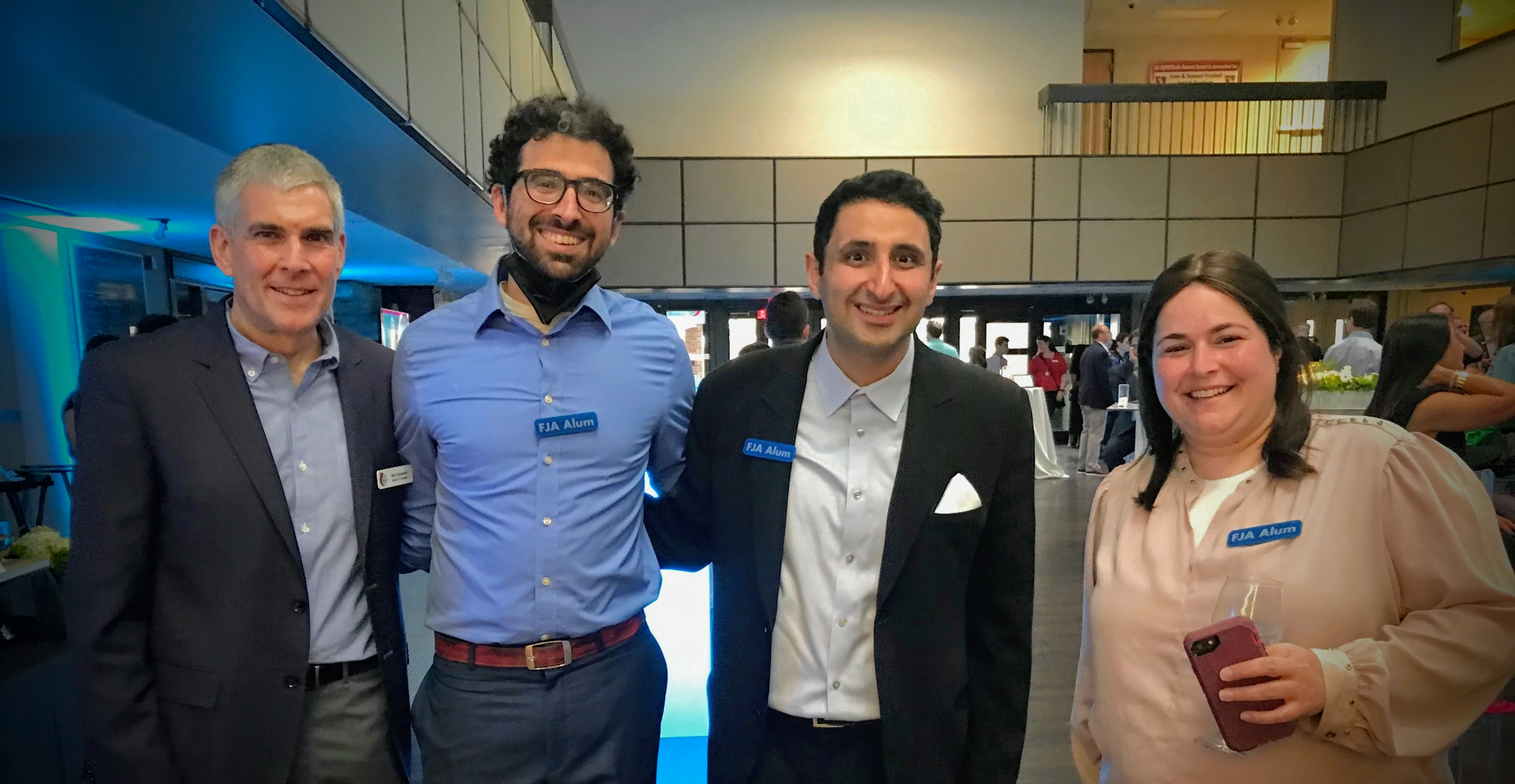On May 10, Frankel Jewish Academy honored Avshalumov, Class of 2003, at its Annual Gala.
I recently got a WhatsApp message from an Israeli relative visiting Azerbaijan. They were tending to the gravesites of their relatives at the Jewish cemetery in Baku and took a couple pictures of my grandparents’ tombstones. My father’s father, Mordechai Avshalumov, was born in Baku in 1929. Though I was too young to remember, I am told he would talk about being educated in Jewish schools until 1939, when religious schools in Soviet Azerbaijan were shut down. Soon after, the Soviet Union would shut down all but a couple synagogues in Baku and prohibit the training of Rabbis and Mohels.
Sixty one years later, two of Mordechai’s grandchildren participated in an opening ceremony for the Jewish Academy of Metro Detroit (JAMD); 51 Students, 28 staff and countless community leaders came together for Shaharit in Handelman Hall followed by dancing and photos in the JCC courtyard.
I imagine how happy Dedula Mordechai would have been at the sight of this. Next to consecrating a synagogue, perhaps nothing epitomizes our religious freedoms in America more than publicly opening a parochial school. Beyond the symbolism, our active role in opening a day school exemplified the reversal of my family’s Jewish literacy trajectory — allowing the next generation to be fluent in our language, our prayers, our holy texts and our history. The Jewish Academy’s opening was, to use a sports metaphor, a statement game, certainly for my family, but as much so for Detroit’s Jewish community.
That day, we collectively stated: that Jewish education is a life-long pursuit not to be put on the backburner after one’s bar or bat mitzvah; that Jewish education is about exposing yourself to the spectrum of Jewish beliefs and practices and choosing your own path; and that Jewish peoplehood must be prioritized despite the pull of universalism.
But that’s not the only statement we made with the opening of JAMD. With its rich general studies curriculum and an impressive cast of teachers, we made a statement about our interdependence to the society around us. Certainly, we had the AP classes, the science labs and the sports facilities.
But it was as much about the zeitgeist around critical thinking, avoiding extremes and eschewing what our beloved US History teacher — Mr. Gutman — described as the “You People” syndrome. I recently learned from Hadar’s Deena Weiss that the Hasidic master, Rabbi Aryeh Leib Alter, taught that:
It is interdependence, rather than independence, that reflects God’s vision for us in the world. We should recognize ourselves as embedded in a social web rather than trying to deny that we exist in relationship to other people.
JAMD then and FJA now continues to state that our Jewish particularism must be held in balance – and sometimes in tension – with our universalism. That we must be in relationship with the word around us, not for parnasa (the ability to earn a good living) and not because of Dina d'malkhuta dina (because it is the law of the land) but because of veahvta leraeha kamoha (love your neighbor as you love yourself) and ger hayita b'eretz mitzraimit (you were a stranger in the land of Egypt).
Dedula Mordechai would have been equally happy that his grandchildren were learning these values. He understood the “You People” syndrome far too well. He witnessed ethnic violence that led to all-out war. He saw coercive nationalism that engendered hate-for-others as a proxy for ethnic identity. And ultimately, he was a victim of this hate. It is this hate that prevented him from seeing my brother and me help open a school and countless other family smachot. It is why we share photos of his tombstone rather than photos of him hugging his great-grandchildren.
So, when we say FJA has a dual curriculum, it’s not about exposing students to Judaic and general studies so that they can choose to be a rabbi or a lawyer later in life (though we have excellent rabbis and lawyers among our alumni). We’re describing a lifelong commitment to balancing these statements. And when you speak to an FJA student or an alumnus, I think you’ll find that they are living out the statements we made 22 years ago.
Admittedly, it’s a difficult balance.
It’s not for everyone — and its demands may even lead to lower enrollment.
But it’s what we stand for.
It’s who we are.
It’s who I am.
It’s why I’m so grateful for my time at JAMD.
It’s why I still feel so connected to FJA.
And it’s why I’m so grateful to everyone who joins me in supporting this great cause.

Avshalumov
Comments
Sign in or become a Nu?Detroit member to join the conversation.
Just enter your email below to get a log in link.